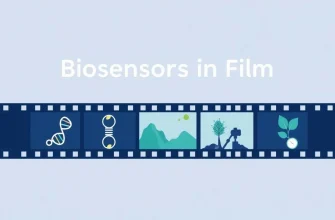- Who Killed the Electric Car? (2006)
- The 11th Hour (2007)
- An Inconvenient Truth (2006)
- Flow: For Love of Water (2008)
- Fuel (2008)
- The Age of Stupid (2009)
- Escape from Suburbia: Beyond the American Dream (2007)
- The Greening of Southie (2010)
- A Crude Awakening: The Oil Crash (2006)
- The Power of Community: How Cuba Survived Peak Oil (2006)
In an era where sustainability and renewable energy sources are at the forefront of global discussions, biofuels have emerged as a promising alternative to traditional fossil fuels. This curated list of documentaries delves into the world of biofuels, exploring their production, impact, and potential. Each film provides a unique perspective on how biofuels can shape our future, offering insights into the science, economics, and environmental implications. Whether you're an environmental enthusiast, a student of renewable energy, or simply curious about alternative fuels, these documentaries will fuel your knowledge and perhaps inspire action towards a greener planet.

Who Killed the Electric Car? (2006)
Description: Although centered on electric cars, it discusses the broader context of alternative energy, including biofuels, as part of the solution to reduce oil dependency.
Fact: The film led to a resurgence of interest in electric vehicles, indirectly promoting other alternative fuels like biofuels.
 Watch Now
Watch Now 
The 11th Hour (2007)
Description: Narrated by Leonardo DiCaprio, this documentary covers various environmental issues, with biofuels being highlighted as a potential solution to reduce greenhouse gas emissions.
Fact: The film features interviews with over 50 scientists, activists, and environmental leaders.
 Watch Now
Watch Now 
An Inconvenient Truth (2006)
Description: While primarily about climate change, Al Gore discusses biofuels as one of the ways to combat global warming and reduce our carbon footprint.
Fact: The film won two Academy Awards, including Best Documentary Feature, and significantly raised public awareness about climate change.
 Watch Now
Watch Now 
Flow: For Love of Water (2008)
Description: While focused on water issues, this documentary touches on biofuels as part of the broader conversation about resource management and sustainability.
Fact: The film features interviews with activists like Maude Barlow, who has been a vocal advocate for water rights.
 Watch Now
Watch Now 
Fuel (2008)
Description: This documentary follows filmmaker Josh Tickell on a journey across the U.S. to explore the potential of biofuels. It delves into the history, politics, and science behind biofuels, making a compelling case for their adoption as a sustainable energy source.
Fact: Josh Tickell, the director, has been promoting biofuels since he was 14, converting his own vehicle to run on vegetable oil.
 Watch Now
Watch Now 
The Age of Stupid (2009)
Description: This film uses a mix of documentary and fictional elements to explore climate change, with biofuels being part of the solution to reduce carbon emissions.
Fact: It was one of the first films to use crowd-sourcing for funding, raising over £1 million.
 Watch Now
Watch Now 
Escape from Suburbia: Beyond the American Dream (2007)
Description: This sequel to "The End of Suburbia" explores various sustainable living options, including biofuels, as alternatives to the unsustainable suburban lifestyle.
Fact: The film was produced by the same team behind "The End of Suburbia," continuing the conversation on sustainable living.
 30 Days Free
30 Days Free 
The Greening of Southie (2010)
Description: Set in Boston's Southie neighborhood, this film documents the construction of a green building, focusing on the use of biofuels in construction and the community's reaction to sustainable practices.
Fact: The film captures real-time community reactions, providing an authentic look at how sustainable practices are received at the grassroots level.
 30 Days Free
30 Days Free 
A Crude Awakening: The Oil Crash (2006)
Description: While not exclusively about biofuels, this documentary discusses the peak oil theory and the urgent need for alternative energy sources like biofuels to mitigate future energy crises.
Fact: The film features interviews with experts like Matt Simmons, who was a prominent figure in the oil industry.
 30 Days Free
30 Days Free 
The Power of Community: How Cuba Survived Peak Oil (2006)
Description: Although primarily about Cuba's response to an oil crisis, it highlights the use of biofuels and organic farming as part of their survival strategy.
Fact: The film showcases how Cuba turned to urban agriculture and biofuels when their oil supply was cut off.
 30 Days Free
30 Days Free 








